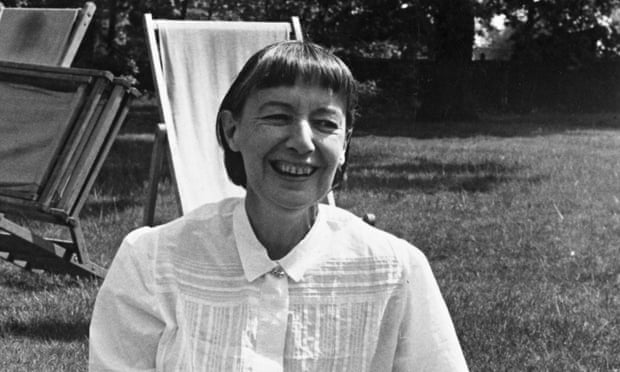Stevie Smith is ripe for rediscovery – not only her hair-raisingly original work, but her rejection of a life dominated by men. Her Novel on Yellow Paper inspired Amy Jenkins to begin writing and proved a telling inspiration again when motherhood made life as a writer seem impossible

Dripping laurels, Palmers Green, the tea trolley, a maiden aunt, damp suburban woods, unsatisfactory love affairs and a rich death feeling: welcome to the world of Stevie Smith, a dank 1930s existence of sad November days and brittle leaves that whisk up under your nose in London parks. “Shot up” and elated by rat holes and seeping mud, Smith has “a great nostalgie for an open drain”. Born in Hull in 1902, she settled in the north London suburb at the age of three with her mother, who was escaping a bad marriage, and her unmarried aunt Margaret Spear. Smith’s mother died when she was 16, but she and her aunt, the “Lion of Hull” as Smith liked to call her, remained in the same small terraced house all their days.
Not encouraged into further education, Smith settled for a dull job as private secretary to the underemployed son of a publishing magnate. She commuted by underground to her office in Covent Garden where she reportedly reached the utmost limit of boredom, her soul hanging “by a thread over the abyss”. Longing for tea to be trundled in by “the hired girl, that’s like an angel of grace”, she wrote her poems and novels on yellow legal pads to while away the day.
Nowadays, Smith is only really remembered for her 1957 poem “Not Waving But Drowning”. Twelve lines long, in many ways it sums up her life.
More
Not encouraged into further education, Smith settled for a dull job as private secretary to the underemployed son of a publishing magnate. She commuted by underground to her office in Covent Garden where she reportedly reached the utmost limit of boredom, her soul hanging “by a thread over the abyss”. Longing for tea to be trundled in by “the hired girl, that’s like an angel of grace”, she wrote her poems and novels on yellow legal pads to while away the day.
Nowadays, Smith is only really remembered for her 1957 poem “Not Waving But Drowning”. Twelve lines long, in many ways it sums up her life.
I was much further out than you thoughtThose four famous words aside, Smith is much undervalued, in my opinion. She is one of those writers who is always ripe for rediscovery – is intermittently rediscovered and then never quite catches on because, although she is very funny, she is also tricky, to say the least. It was the 1980 Virago reissue of Novel on Yellow Paper that introduced me to her work, so I’m pleased that another Virago edition has now come out. Also, a revival of Hugh Whitemore’s play Stevie is currently playing at the Hampstead theatre.
And not waving but drowning.
More
No comments:
Post a Comment